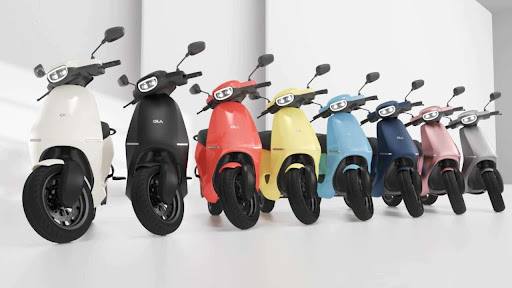


Tata, Hyundai, Morrison Garage, Mahindra, and Nissan are dedicated to electric vehicles. In India, two-wheeler manufacturers are also introducing two-wheeler electric scooters alongside bikes. In India, the cost of a franchise for an electric vehicle charging station is meagre.
As a result, the market for electric scooters will increase in the coming years. If anyone is interested in owning an Electric Vehicle Charging Station Franchise, they can do so as a long-term investment.
Before heading to an electric car charging station dealership, define what an electric charging station is. Essentially, it is a station or region where charging ports are available. It is built so that it can charge both electric two-wheelers and four-wheelers. This system was also created to handle high voltage/power to charge electric vehicles.
All-electric vehicles are entirely reliant on the batteries installed within the vehicle. As a result, when a vehicle’s battery power is low, it can be charged at these charging stations. These vehicles do not have a diesel or gasoline option.
If your charging station allows for quick charging, it will undoubtedly increase demand and business. Today’s society necessitates rapid charging. The stock charger that comes with the scooter is a regular charger, which will take 4 to 5 hours to charge completely. Exa RideTM offers a franchise opportunity to start your own electric vehicle rental business!
Exa RideTM is a service provided by Exa Mobility India Pvt. Ltd. to rent and share electric scooters. Exa RideTM is currently available in Pune, Navi Mumbai, Thane City, Nashik, and Goa.
Why should you set up an EV charging station in India is the first question that comes to mind. With this article, we’d like to talk about the benefits of charging stations:-
There are five different franchise business models to choose from:
1: COCO
COCO stands for Company Owned and Company Operated, which means that the brand owns and operates the franchise store unit. It doesn’t have anything to do with franchising. As a result, the business invests its funds in the franchise. In addition, the franchise is run by brand employees.
2: FOCO
The investor (franchise) bears the initial setup costs in the FOCO model. The Brand is responsible for the ongoing expenses (operations). And the Brand is in charge of operations.
3: FICO
The FOCO model is similar to this one. In the FICO model, however, Brands raise funds from investors in exchange for the promise of opening franchises. Essentially, the franchisee (investor) only invests in the business.
4: COFO
That’s where the firm spends in the franchise business, and the franchisee runs it according to the brand’s guidelines. The returns may fall somewhere in between the FOCO and FOFO models.
5: FOFO
The company is giving the franchise investor its trademark in this model. They do so in exchange for a non-refundable (franchise fee) and a pre-determined period.
With makers lining up their EVs for delivery in the coming years, it wouldn’t be incorrect to recommend that the growth of Indian motoring has finally arrived. And we should both be a part of it. Electric vehicles are friendly to the environment. Electric vehicles are acceptable for any country because they reduce air pollution and diesel import costs.
Electric cars may be an excellent development for developing countries like India. It must have sufficient charging stations and parking spaces before accepting electric cars as mandatory, and the best part is that it will be “Made in India.” It will be mentioned when all cars are replaced by electric vehicles in 2030.
So come and Own an Electric Vehicle Rental Business Franchise offered by Exa Ride™!